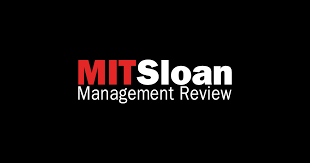
Weekly Business Insights from Top Ten Business Magazines
Extractive summaries and key takeaways from the articles curated from TOP TEN BUSINESS MAGAZINES to promote informed business decision-making | Since September 2017 | Week 338 | March 1-7, 2024

Leading & Managing Section | 2
How to Delegate More Effectively: Four Approaches
By Beth K. Humberd and Scott F. Latham | MIT Sloan Management Review | February 29, 2024
Extractive Summary of the Article | Read | Listen
The question of when and how to delegate remains difficult. To address this problem, the authors developed a framework based on two core dynamics at the heart of effective delegation: people and process. Trust in people is nothing new to conversations on effective delegation; however, trust in organizational processes is an equally important but underappreciated consideration in delegation decisions. So the author’s framework advises leaders to consider two key questions when entertaining the delegation scenarios: “To what extent do I trust the people?” and “To what extent do I trust the process?” The framework has identified four ways to approach delegation based on whether there is emerging or established trust in people and the organizational process:
Engage: Emerging Trust in Both Process and People. A scenario in which trust in both the people and the process is only beginning and not yet established. Here, delegation can break down quite easily if not managed appropriately. Delegation focused on ‘assisting’ with any problem or roadblock. It involves striking the right balance between allowing the employee to learn and try while remaining close enough to assist and buffer any problem areas or roadblocks.
Educate: Established Trust in Process, Emerging Trust in People. For example, think about when individuals are promoted into new roles within the organization or when a new hire is brought in from outside the organization and must learn processes that are new to them. In this scenario, delegation can take the form of educating. The goal here is for the employee to learn the established process and build confidence in their own ability to carry it through.
Engineer: Established Trust in People, Emerging Trust in Process. This situation is common in startup companies or during a turnaround when new or reengineered processes are being put into play within established teams. It’s also common in larger companies with an innovation culture grounded in process improvement. The focus needs to be on engineering. The goal here is for the leader to support the employee in adapting the process to ensure improved functioning. This may mean that the leader becomes a sounding board for the employee’s proposed approaches, or it may require the leader to roll up their sleeves and learn about the process flaws from the ground up.
Empower: Established Trust in Process, Established Trust in People. This is a prototypical scenario that likely comes to mind when we think of delegation: A leader has a longtime direct report who’s relied upon to “hold down the fort” when the leader is out of town. Here, delegation is best handled through empowerment. Full responsibility is assigned to a person who has the skills to manage a process that the leader trusts to be effective.
2 key takeaways from the article
- The question of when and how to delegate remains difficult. Two core dynamics at the heart of effective delegation: people and process. Trust in people is nothing new to conversations on effective delegation; however, trust in organizational processes is an equally important but underappreciated consideration in delegation decisions. Consider two key questions when entertaining the delegation scenarios: “To what extent do I trust the people?” and “To what extent do I trust the process?”
- A suggested framework identified ways to approach delegation based on whether there is emerging or established trust in people and the organizational process: Empower (Established Trust in Process, Established Trust in People – delegation focused on ‘assigning’ full responsibility to the employee), Engage (Emerging Trust in Both Process and People – delegation focused on ‘assisting’ with any problem or roadblock.), Educate (Established Trust in Process, Emerging Trust in People – delegation focused on ‘advising’ the employee on organizational steps), and Engineer (Established Trust in People, Emerging Trust in Process – delegation focused on ‘adapting’ process for improved functioning).
(Copyright lies with the publisher)
Topics: Delegation, Teams, Leadership, Performance, Culture
